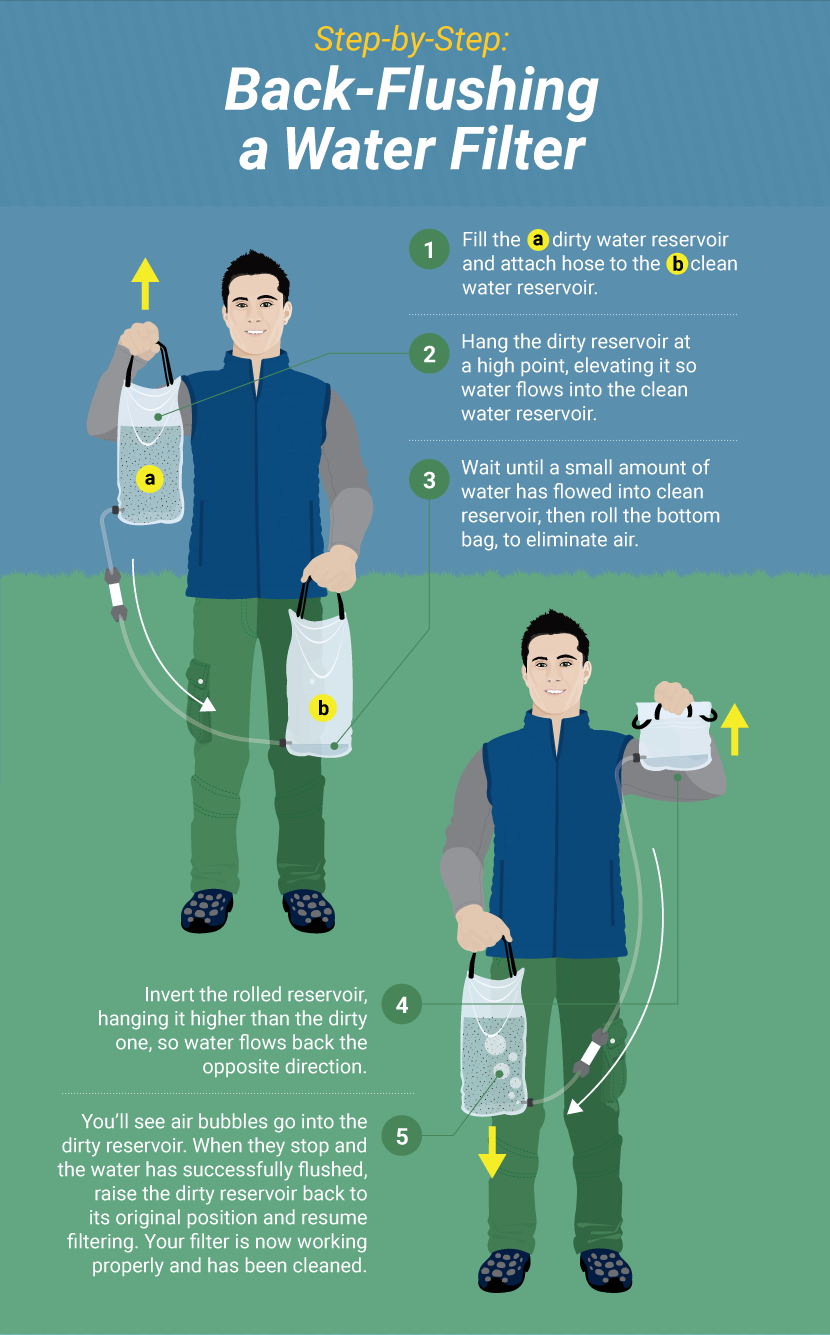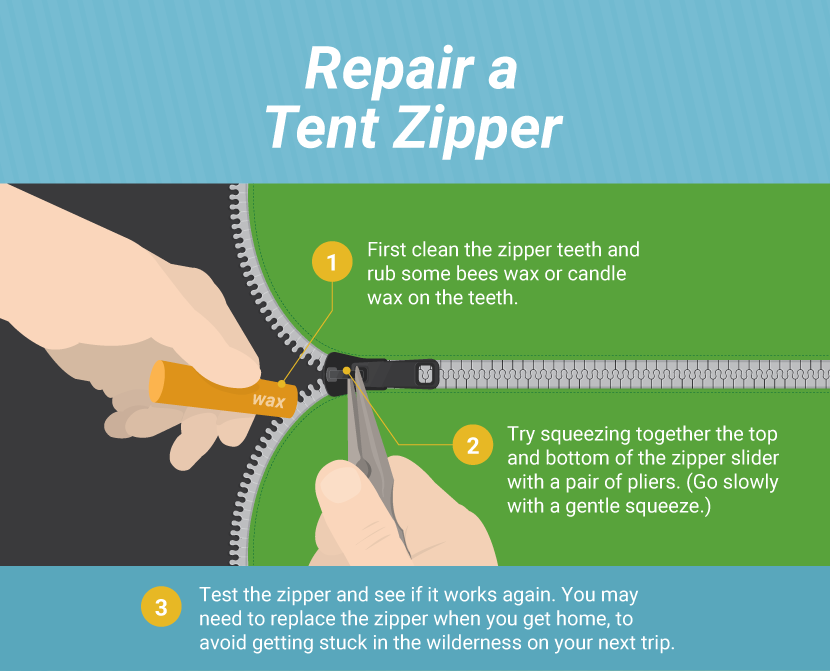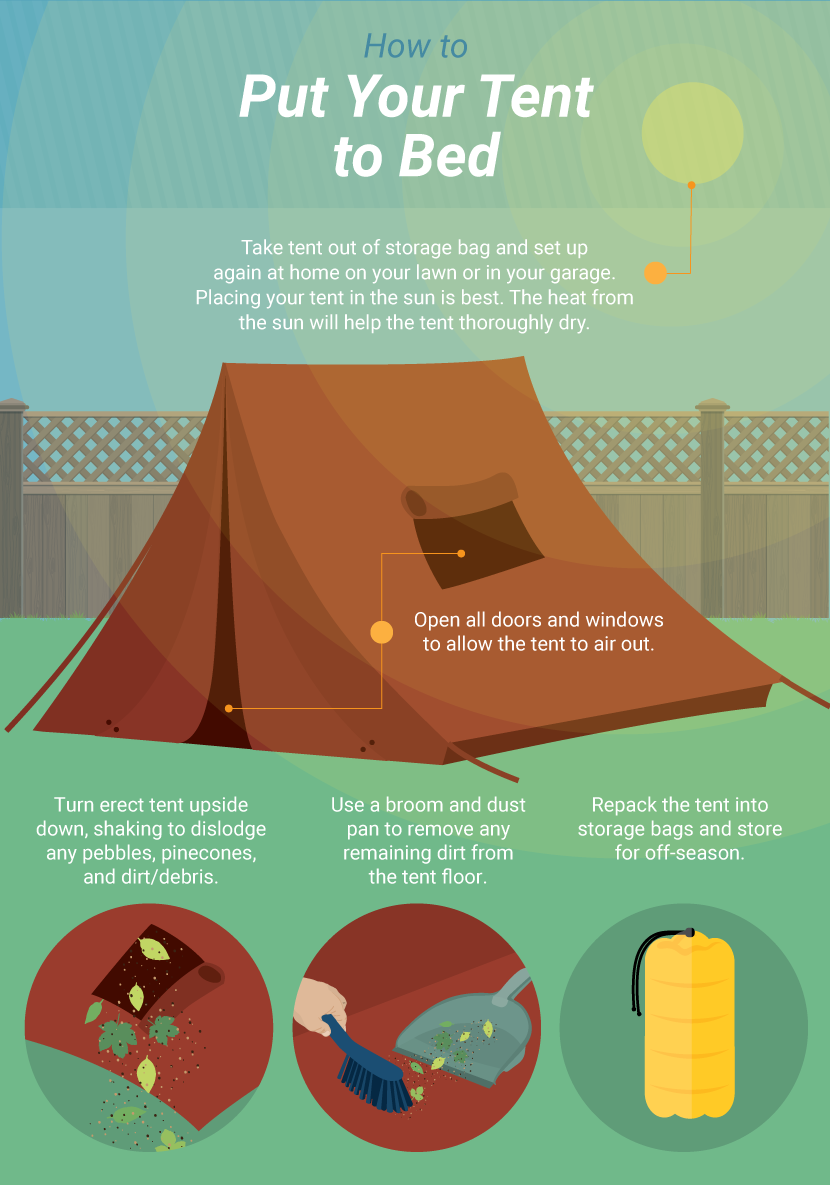Prolong The Life of Your Camping Gear
Tips For Before, During, and After Your Trip
Camping gear is expensive to purchase, and it’s essential to your comfort and safety when you’re the outdoors. Both of these facts are great reasons to protect your gear from damage,
wear, and age while in the wilderness and while storing your equipment at home.
Here’s what you need to know to protect your investment and stay warm and dry outdoors.
Prepare Your Gear Before You Hit The Trail
You’ve bought all your camping gear, and you’re excited to try it all out. Now’s the time to protect your investment! Here’s what to do to take proper care of your equipment during the off-season and between camping trips.
Treat synthetic and waterproof materials: Outerwear, like Gore-Tex, and synthetic gear, like tent material, need TLC before your first adventure and between adventures thereafter.
Use a wash-in laundry agent like Nikwax to add repellency to waterproof materials,
such as Gore-Tex jackets and tent rain flies, and use a base wash for synthetic clothing layers, such as base layers and long underwear. Use a rub-on solar-proof agent to treat tent walls and protect them from sun damage.
Unwrap prepared food items: No one wants to deal with extra trash on the trail or at the campground.
Reduce garbage in the wilderness by unwrapping camp food items such as mac and cheese boxes, instant potato pouches, and even granola bars or energy bars.
Store prepped food in labeled Ziploc bags until it’s time for your trip.
Check hydration systems: It’s essential to check your hydration systems for leaks or cracks in hoses. Replace hoses or hydration bladders at any outdoor store (the brand will be the same as the backpack you originally bought it in).
Between uses, drain bladders and store hoses in such a way that water doesn’t pool inside them.
Replace filters in backpacking water pumps and prep gravity-based filters: Check with your pump manufacturer to see how often filters need to be replaced, and check gravity-based filters for possible clogs or effectiveness by back-flushing them.

What to Bring to Fix or Replace Gear on The Fly
Once you’re on the trail, there are additional ways to prolong the life of your gear. Equipment occasionally fails, breaks, or tears, but with the following items in tow, most gear fails can be remedied.
Trekking poles can become tent poles: If a tent pole breaks (or if you forgot them!), your trekking poles can be used as emergency back-ups.
Wedge the trekking pole handles into tent pole slots or use duct tape to secure the poles to the tent material in a pinch.
Duct tape can become blister prevention: Duct tape has many useful purposes on the trail, but don’t overlook it as a blister prevention.
Thanks to its waterproof nature, duct tape sticks to skin better than bandages or Moleskin, adding a tough barrier between you and the friction caused by hiking boots.
A travel sewing kit can repair rain fly: Have a small travel sewing kit? Bring it. These kits only weigh a few ounces, and they can be lifesavers if you have a rip in your rain fly, sleeping bag, or tent.
A garbage bag can become a rain jacket: Stuff at least one standard garbage bag in with your gear. Garbage bags stuff down to almost nothing, they weigh very little, and they can be used as a shelter, rain jacket, or, yes, as a garbage bag.
Pliers and wax can fix a tent zipper: With just these two tools, most stubborn zipper fails can be fixed on the trail,
ensuring that you can keep using your sleeping bag, tent, or backpack. Often, zippers will need to be replaced once you get back home.

How to Store Gear to Give it a Long Life
Once you’re home from your camping trip, it’s time to ensure that your gear is stored properly and that it will be ready for your next adventure.
How to Store Sleeping Bags
Pull sleeping bags out of their stuff sacks and place them in larger mesh bags designed for storage (these can be found at any outdoor store).
Hang these bags from hooks or along the walls of a dry, clean storage area, such as a garage or well-ventilated basement.

How to Store Tents
After use, shake out and dry out tents before re-stuffing them in their included tent bag and storing them. Many campers make the error of re-stuffing their tents as soon as they take them down in the morning;
however, dew collects on tent walls, and re-stuffing your tents while it’s wet can cause it to remain damp during storage.
How to Store Backpacks
Empty backpacks after use and hang them from pegs or hooks to ensure that the hip belts and sternum straps do not become bent in an unnatural position between uses.
How to Store Kitchen Items
Wash backpacking kitchen supplies, such as pots, pans, utensils, plates, and cups, in a dishwasher or by hand. Dry them thoroughly and then stack them in extra stuff sacks that can be closed with a drawstring or zipper.
Camping is an activity you can enjoy for your whole life, so make sure your camping gear will last!
Embed the article on your site

